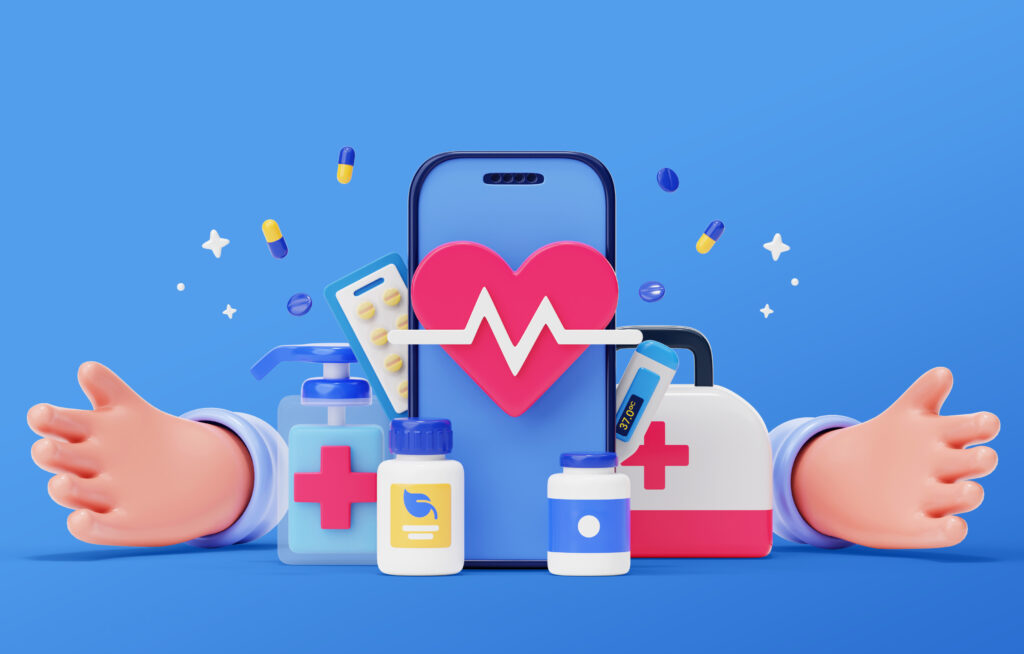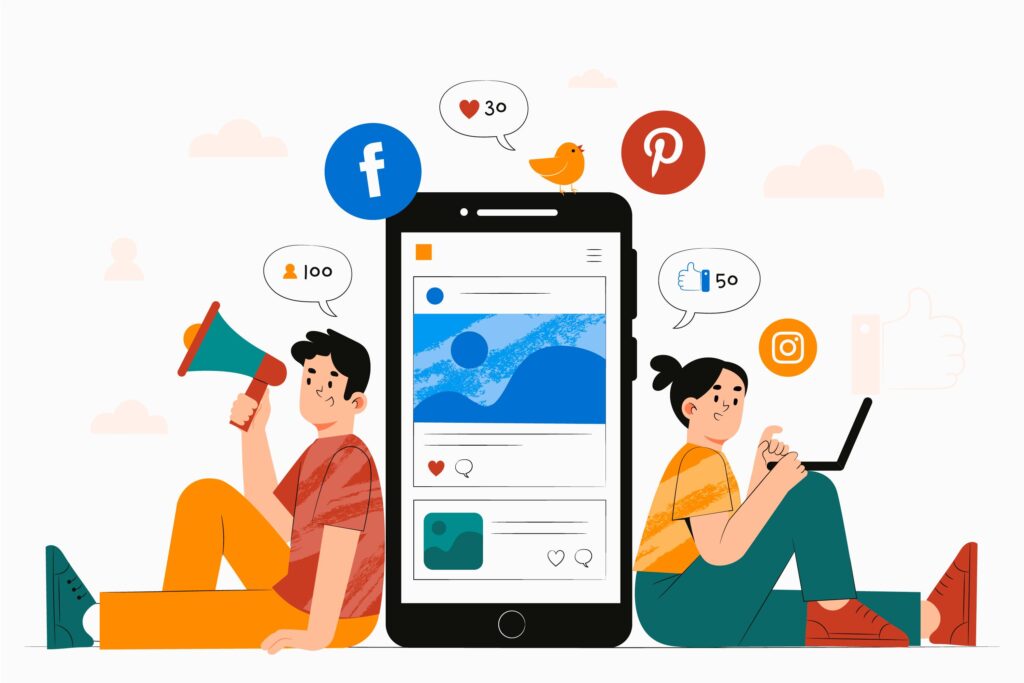
Mastering Digital Marketing for Healthcare: Strategies and Best Practices
Digital marketing is transforming how healthcare providers connect with patients. As more people turn to the internet for health information, healthcare organizations must leverage digital marketing strategies to stay competitive. In this comprehensive guide, we’ll explore the key components of healthcare digital marketing, the benefits, and best practices to ensure your medical marketing agency thrives.
Table of Contents
- Introduction to Healthcare Digital Marketing
- Why Digital Marketing is Crucial for Healthcare
- Essential Digital Marketing Strategies for Healthcare
- Search Engine Optimization (SEO)
- Content Marketing
- Social Media Marketing
- Email Marketing
- Pay-Per-Click (PPC) Advertising
- Online Reputation Management
- Benefits of Digital Marketing in Healthcare
- Challenges in Healthcare Digital Marketing
- Best Practices for Effective Healthcare Digital Marketing
- Case Studies of Successful Healthcare Digital Marketing Campaigns
- Future Trends in Healthcare Digital Marketing
- Conclusion
1. Introduction to Healthcare Digital Marketing
Digital marketing in healthcare involves promoting health services and products using digital channels such as websites, social media, email, and search engines. Unlike traditional marketing, digital marketing allows for targeted, measurable, and interactive campaigns.
2. Why Digital Marketing is Crucial for Healthcare
With the increasing use of the internet for health-related searches, digital marketing provides a unique opportunity to engage and educate patients. It enhances visibility, builds trust, and drives patient acquisition and retention.
Key Reasons:
- Increased Online Searches: Over 80% of internet users search for health information online.
- Patient Engagement: Digital platforms offer personalized and interactive patient experiences.
- Cost-Effective: Digital marketing often costs less than traditional marketing methods.
- Measurable Results: Digital campaigns can be tracked and optimized for better outcomes.
3. Essential Digital Marketing Strategies for Healthcare
To effectively reach and engage your audience, it’s essential to implement a variety of digital marketing strategies:
Search Engine Optimization (SEO)
SEO is the process of optimizing your website to rank higher in search engine results. This increases visibility and drives organic traffic to your site.
Key SEO Practices:
- Keyword Research: Identify and use relevant keywords that patients are searching for.
- On-Page SEO: Optimize titles, meta descriptions, headers, and content for keywords.
- Technical SEO: Ensure your website is mobile-friendly, fast, and secure.
- Local SEO: Optimize for local searches by claiming your Google My Business listing and encouraging patient reviews.
Content Marketing
Content marketing involves creating and sharing valuable content to attract and engage your target audience. This can include blog posts, articles, videos, infographics, and more.
Effective Content Marketing Tips:
- Educational Content: Provide informative content that addresses common health concerns.
- Patient Stories: Share patient testimonials and success stories.
- Visual Content: Use videos and infographics to make complex information more digestible.
- Regular Updates: Keep your content fresh and up-to-date with the latest medical advancements.
Social Media Marketing
Social media platforms like Facebook, Twitter, Instagram, and LinkedIn offer powerful tools for connecting with patients and promoting your services.
Social Media Best Practices:
- Consistent Posting: Maintain a regular posting schedule.
- Engaging Content: Share tips, health news, and patient stories.
- Interactive Features: Use polls, Q&A sessions, and live videos to engage with followers.
- Targeted Ads: Use social media ads to reach specific demographics.
Email Marketing
Email marketing is an effective way to stay in touch with patients, provide valuable information, and promote services.
Email Marketing Strategies:
- Segmentation: Divide your email list into segments based on patient interests and behaviors.
- Personalization: Use patient names and tailor content to individual preferences.
- Automated Campaigns: Set up automated emails for appointment reminders, follow-ups, and newsletters.
- Valuable Content: Include educational content, health tips, and special offers.
Pay-Per-Click (PPC) Advertising
PPC advertising allows you to place ads on search engines and social media platforms, paying only when someone clicks on your ad.
PPC Tips:
- Keyword Selection: Choose relevant and high-converting keywords.
- Ad Copy: Write compelling ad copy that encourages clicks.
- Landing Pages: Ensure your landing pages are optimized for conversions.
- Budget Management: Monitor and adjust your budget based on performance.
Online Reputation Management
Your online reputation can significantly impact patient decisions. Managing reviews and maintaining a positive online presence is crucial.
Reputation Management Strategies:
- Monitor Reviews: Regularly check and respond to patient reviews on sites like Google, Yelp, and Healthgrades.
- Encourage Reviews: Ask satisfied patients to leave positive reviews.
- Address Negative Feedback: Respond professionally and constructively to negative reviews.
- Highlight Testimonials: Showcase positive patient testimonials on your website and social media.
4. Benefits of Digital Marketing in Healthcare
Digital marketing offers numerous benefits for healthcare organizations, including:
- Increased Visibility: Higher search engine rankings and active social media presence enhance your visibility.
- Patient Engagement: Digital platforms provide opportunities for interactive patient engagement.
- Cost Efficiency: Digital marketing can be more cost-effective than traditional methods.
- Measurable Results: Track and analyze the performance of your campaigns for continuous improvement.
- Improved Patient Experience: Provide valuable information and support to patients throughout their healthcare journey.
5. Challenges in Healthcare Digital Marketing
While digital marketing offers many advantages, it also comes with challenges:
- Regulatory Compliance: Adhering to healthcare regulations and privacy laws like HIPAA.
- Trust and Credibility: Building and maintaining trust with patients online.
- Content Quality: Ensuring content is accurate, informative, and relevant.
- Technology Adoption: Keeping up with the latest digital marketing tools and trends.
6. Best Practices for Effective Healthcare Digital Marketing
To maximize the effectiveness of your digital marketing efforts, follow these best practices:
- Focus on Patient Needs: Understand and address the needs and concerns of your patients.
- Maintain Consistency: Ensure consistent branding and messaging across all digital channels.
- Optimize for Mobile: Ensure your website and content are mobile-friendly.
- Use Data Analytics: Utilize data to track performance and make data-driven decisions.
- Stay Compliant: Adhere to all healthcare regulations and privacy laws.
- Invest in Training: Keep your team updated on the latest digital marketing trends and tools.
7. Case Studies of Successful Healthcare Digital Marketing Campaigns
Learn from successful healthcare digital marketing campaigns to inspire your own strategies:
Case Study 1: Mayo Clinic
Mayo Clinic effectively uses content marketing and SEO to provide valuable health information and rank high on search engines. Their patient-focused content and authoritative website attract millions of visitors monthly.
Case Study 2: Cleveland Clinic
Cleveland Clinic excels in social media marketing, sharing engaging content and patient stories across platforms. Their consistent posting and interactive features help build a strong online community.
Case Study 3: Kaiser Permanente
Kaiser Permanente leverages email marketing to provide personalized health tips and appointment reminders, enhancing patient engagement and retention.
8. Future Trends in Healthcare Digital Marketing
Stay ahead of the curve by keeping an eye on emerging trends in healthcare digital marketing:
- Telehealth Integration: Promote telehealth services through digital channels.
- AI and Chatbots: Use AI-powered tools to enhance patient interactions and support.
- Personalization: Implement personalized marketing strategies to cater to individual patient needs.
- Video Marketing: Increase the use of video content for education and engagement.
- Voice Search Optimization: Optimize content for voice search as more patients use voice-activated devices.
9. Conclusion
Healthcare digital marketing is essential for reaching and engaging patients in today’s digital age. By implementing effective strategies and following best practices, medical marketing agencies can enhance visibility, build trust, and drive patient acquisition and retention. Stay informed about the latest trends and continuously optimize your efforts to ensure long-term success in the healthcare industry.


